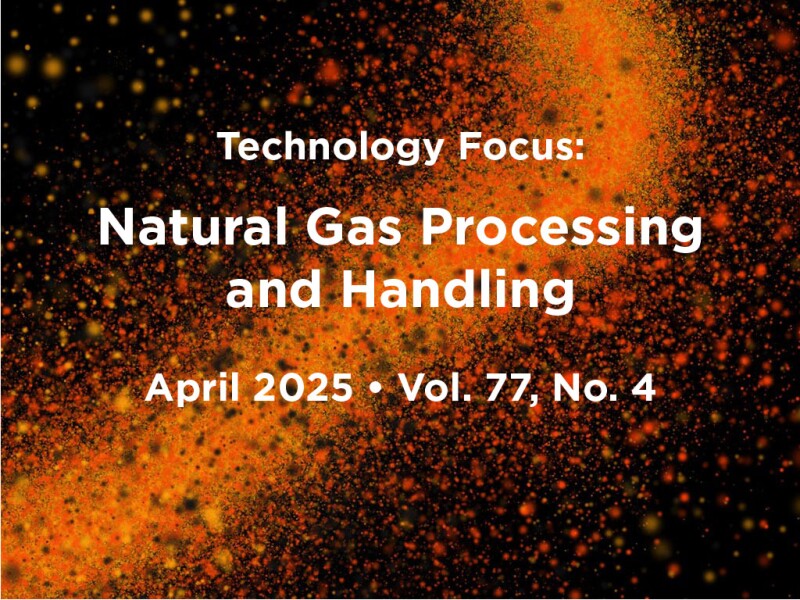Natural gas processing includes an array of operations, including natural gas dehydration, sweetening, liquefaction, fractionation, knockout of inert gases, transportation, and transmission to sales point. These processes require interactions of different phases of dry-gas and wet-gas pressure, volume, and temperature. These interactions are demonstrated using equations of state, simulations, and models. Recently, artificial intelligence (AI), deep learning (DL), and machine learning (ML) have taken natural gas processing and handling on a new trajectory, replacing complex simulation runs.
Challenges related to natural gas processing and handling such as gas leaks, carbon emission, and gas flaring are being managed using innovative processes developed through the operations of AI, ML, and DL. In reviewing a collection of SPE papers with top-notch innovations in natural gas processing operations, it is clear that technologies have become smart, with researchers and technology experts moving with the trends to make improvements on previous operations.
Researchers and technology experts have made novel and innovative contributions to natural gas processing and handling using robotic and smart technologies for leak detection, carbon footprinting, and flare management. Smart technologies have also improved the operation processes around gas dehydration, sweetening, liquefaction, and fractionation. These have replaced complex backend simulations and have made natural gas processing seamlessly automated. Truly, AI, DL, and ML may not be optimally efficient in other climes, but they have shown reasonable efficiency in surface production operations, especially natural gas processing, because many of these operations have been automated. This trend is seen in the papers summarized here.
Summarized Papers in This April 2025 Issue
OTC 34756 Deep-Learning Image-Processing Model Uses Optical Gas-Imaging Camera To Detect Leaks by Mehdi Korjani, Clean Connect, et al.
SPE 222264 Zero-Flaring Technology Reduces Greenhouse-Gas Emissions by Zeeshan Ahmad, ADNOC, et al.
SPE 222818 Study Explores Carbon-Capture Options for Gas-Processing Facilities by Srihari Kannan, Shell, et al.
Recommended Additional Reading
SPE 218939 Advancements in Gasfield Operations: A Path to Achieving Zero Flaring by Zaid Alsuhali, Saudi Aramco, et al.
SPE 222919 A Study on Supply-Chain Management of LNG Using Artificial Intelligence by Nicy Susan Koshy, Trafigura Global Services
SPE 218564 Optimizing Gas-Pipeline Operations With Machine Learning: A Case Study of a North American Energy Company by S. Saboo, Amazon Web Services

Adaobi Stephenie Nwosi-Anele, SPE, is a senior lecturer of petroleum engineering at Rivers State University in Nigeria and a research adviser on sabbatical with Shell Petroleum Development Company. She holds a bachelor’s degree in petroleum engineering from Rivers State University and master’s and PhD degrees in petroleum engineering from the University of Port Harcourt. Nwosi‑Anele teaches petroleum economics, natural gas processing, and engineering economics and management at Rivers State University. She has more than 30 paper publications in petroleum economics, engineering economics and management, and natural gas processing operations. Nwosi-Anele teaches preconference short courses for SPE at SPE’s Nigeria Annual International Conference and Exhibition. She is currently the scholarship chairperson for the SPE Port Harcourt Section and serves on the JPT Editorial Review Board.

